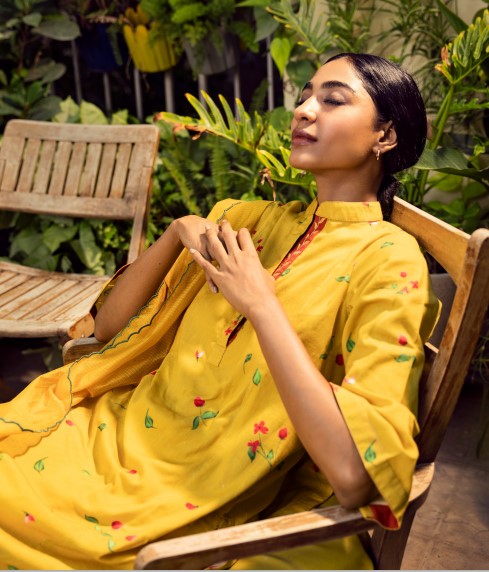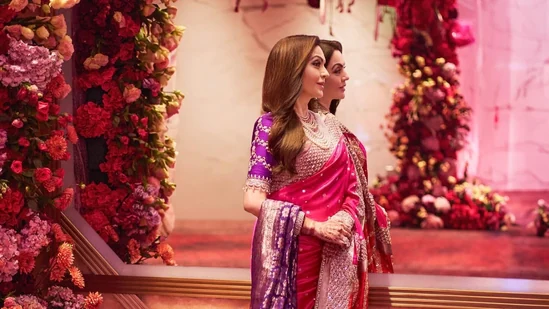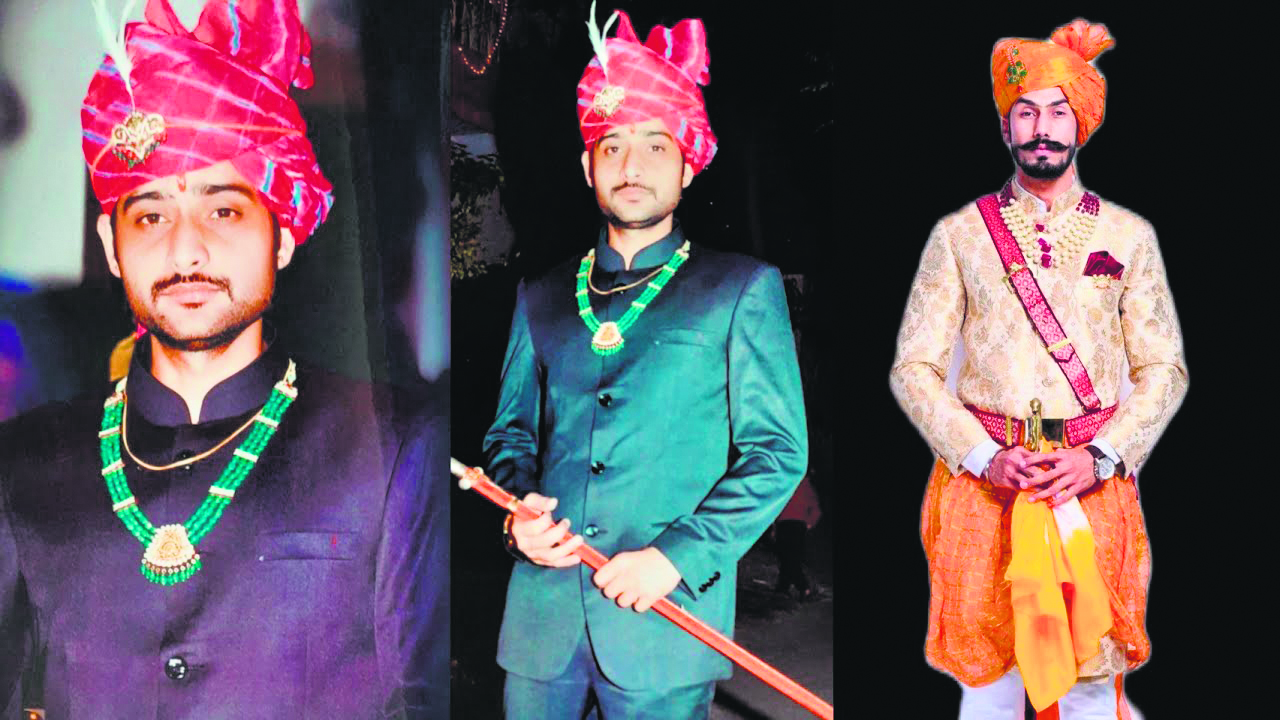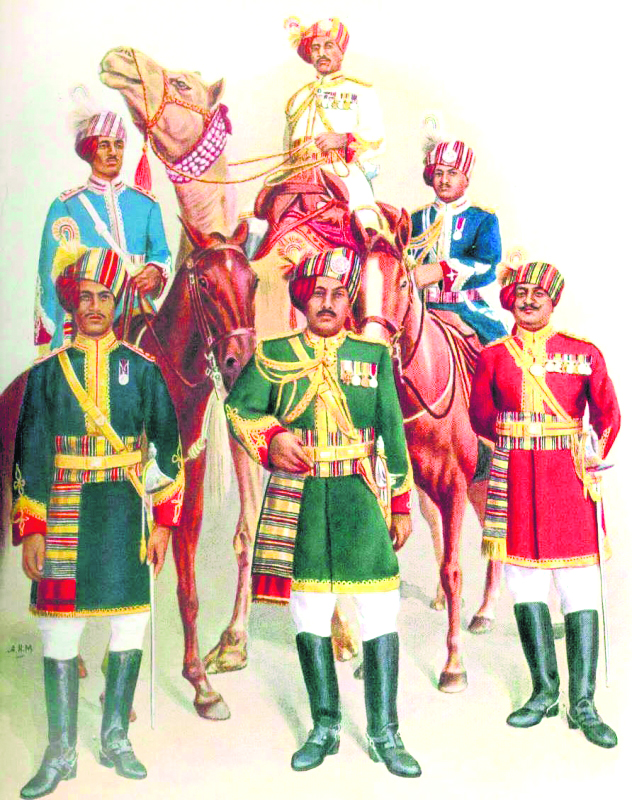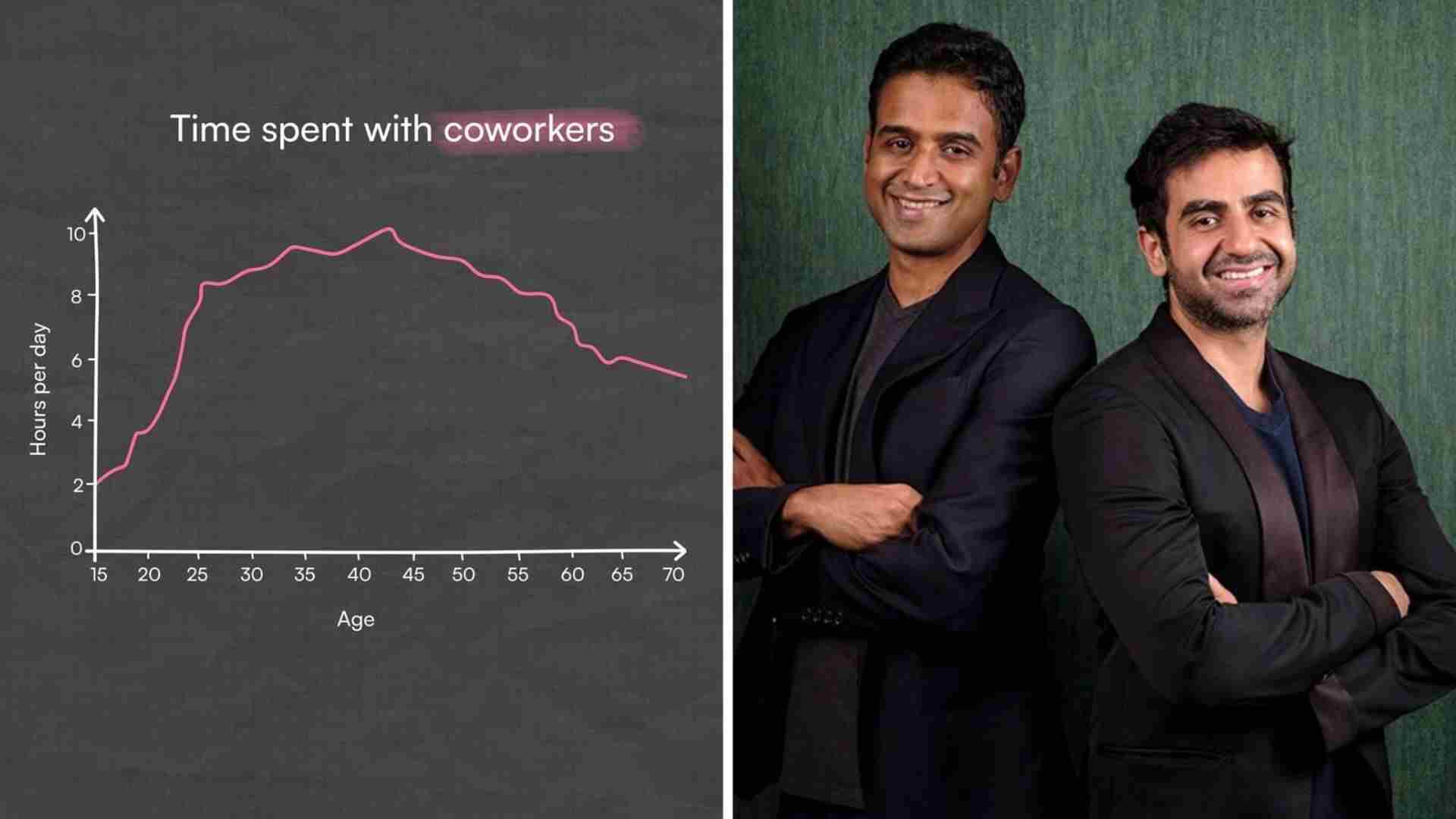As the fervour of dressing up for a festive occasion catches every woman’s imagination and metro denizens get inundated with party invitations, dressing up with a conscious and sustainable collection catches steam. Royal and palace ateliers are riding this wave. along with conscientious denizens who are looking keenly towards the world of the future and creating voices for local hand-made brands that are fair commerce at their core.
This Diwali, the overdressed, glitzy glam look has been carefully replaced with artisanal, hand-made, hand-tucked and hand-embellished ensembles. Block printing tops this list. The free-flowing forms of the kaftan, the aabha kurtas, and the anarkalis worn with the chauda pyjamas take up every fashion diva’s mind space.
At the royal ateliers, two brands ace this look. Rani Jaykirti Singh Baria’s studio tops this genre. Her block prints spell a cerebral beauty that few can match. Her blocks are a piece of art, what with the designs getting carved on teak wood using special equipment. For all the different hues we see in her designs, different blocks are used. The outline of the lead block is called the “rekh”. The block that fills the foreground is known as “datta”. For the background or blotches, we use a block called “gadh”. When something is created with such elaborate effort, the results can be nothing but exquisite.
The blocks made in her studio in Jaipur are more intricate and have more depth. The result is clearer printing and cleaner surfaces. What makes her prints even more intricate and endearing are the number of air passages, or “pavansar,”the blocks have. These holes drilled through the blocks ensure the circulation of air. While using the blocks, the holes prevent the fabric from lifting when the block is raised. Simple techniques lead to stunning ensembles created painstakingly.
Meanwhile, in Delhi, a new brand, Yumi, is slowly making inroads into this world of commitment. Moved by the plight of the Indian artisanal community and committed to a sustainable way of life, two design professionals, Natasha Chaudhri and Shilpa Gupta, launched Yumi. A fashion label that represents a unique curation of design-led, conscious women’s wear that is hand block printed and woven by female artisans. Yumi also works with village artisans and women weavers to create special textiles and saris that are hand spun, hand woven, and dyed in natural dyes.
Inspired by the Japanese word “Yumi,” which means “abundant beauty,” the label attempts to take fashion seekers back to their roots. Inviting fashion seekers who are as committed to helping the planet heal, Yumi is uncompromisingly chic and high on its design and style quotient. Following a design-led, fair commerce philosophy, Yumi celebrates the abundant artisanal beauty of Indian handicrafts. It’s a collaborative initiative with artisans to revive and sustain the creative and traditional handicraft knowledge system of India.
Natasha Chaudhri and Shilpa Gupta share “We are committed to working with the artisans through special design interventions using natural fibres like fine linen, khadi, organic cotton, cotton silk, and muslin. “We are seeking to create contemporary markets for the products as an initiative to sustain the art form as a mark of deep respect for the artisans pursuing the handcraft despite the innumerable challenges,” adds Shilpa.
Shilpa and Natasha have been design entrepreneurs and restaurateurs for over 22 years and are now inspired to serve vulnerable communities with love.Besides their fair commerce label that works with artisans, they have also curated Yumi Farm and supported small women village farmers and entrepreneurs to create a bouquet of farm products to support them through the pandemic. As an ode to children in villages, Natasha & Shilpa work closely to bring equal and fair literacy to children. This year they worked to set up a mobile library for children in a village in Jammu.
Another favourite for me this year is Label Pratham, brought alive by two young craft protagonists who are reviving the splendid aura of Pichwai and Kalamkari. Popular as the Pichwai Couple, Shweta and Prashant Garg started designing outfits for each other in early 2004. Little did they know that they would take up design as their profession in the future. Coming from steel business families and with no formal training in fashion, ‘Label Pratham’ was born out of the couples’ inclination towards art and design intricacies in 2011.
Label Pratham is not just a brand but a true labour of love where each creation is motivated by the designers’ commitment to keep alive the unadulterated exuberance of the textile traditions of India in its designing process.
And this commitment has now led to graceful amalgamations of Pichwai with other traditional artforms and crafts like Kalamkari, Ajrakh, Jamdani, Paithani, and Aari & Ahir embroideries to suffuse the life of an Indian diva with aesthetic fashion.
Last on my list but never the least is the new born label Tinka Tinka, born from the ever exuberant brilliance of fashion protagonist Ishita Sudha Yashvi, who has emerged as such an icon of all things hand-made, local and unique. Her brand personifies her world. So what are you waiting for? Go get dressed for Diwali and also save the world.

